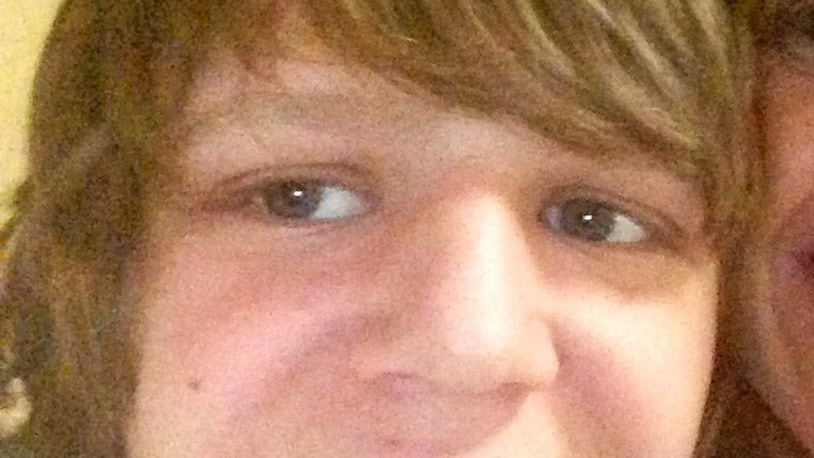Caleb had actually been holding a cordless phone he had taken from his father’s home.
Jeffrey Surface, Caleb’s father, maintains that Conklin’s account of his son’s death doesn’t add up.
In Conklin’s account of the shooting, Caleb said multiple times that he had a gun. But witnesses said they never heard Caleb say anything to Conklin on the cold, winter night.
A civil lawsuit was filed a year after the incident by Surface and Caleb’s mother, Laura Pavlech. And last week, a federal judge denied Conklin’s request to dismiss that civil lawsuit.
“The court concludes that there remains a genuine dispute of material fact as to whether defendant Officer Scott Conklin acted reasonably … ” United States District Court Judge Timothy S. Black wrote in his decision.
Conklin “asserts that prior to discharging his police firearm, Caleb twice stated he had a gun … Officer Conklin further asserts that after he directed Caleb to keep his hands visible, Caleb responded by stating ‘Are you not listening to me? I have a gun. I will kill you,’ ” Black wrote.
But, the judge wrote, “there are three witnesses who observed interaction between Officer Conklin and Caleb and that these witnesses did not hear Caleb ever make any statements to Officer Conklin.”
Thus, the plaintiffs argue there was genuine issue of material fact that Caleb ever addressed Conklin and that the officer had probable cause to to believed he posed a threat of serious harm to the officer or others.
“The statements of two of the three witnesses cited by plaintiffs … do not create a genuine issue of material fact,” Black wrote. “The witness affidavits merely fail to corroborate Officer Conklin’s account of Caleb’s statements regarding having a gun; they do not actually dispute Officer Conklin’s account … they simply indicate they did not hear Caleb state anything to Officer Conklin.”
Conklin’s account of the events are “more genuinely disputed,” the judge wrote, by a 2016 affidavit of a witness who said she saw the moment Caleb was killed, less than one football field’s length from her home’s back window.
According to that witness, Conklin followed Caleb until the two were about more than 50 feet apart. At that time, Conklin said, “Caleb, stop,” according to the witness. When Caleb turned around, Conklin immediately fired his gun twice, killing the young man, the witness said.
“Thus, under this witness’s observations, Caleb did not speak, and there was no significant lapse of time between Officer Conklin’s warning and the shooting that would have allowed Caleb to threaten Officer Conklin,” Black wrote.
But, the judge also points out, that same witness gave a different statement just after the shooting.
In her first account, the witness said Caleb came to her door asking to use a phone and was “reaching into his pocket in his coat, a suspicious behavior that was excluded from her later affidavit.”
When Caleb’s father called 911, he told police that he had almost shot his own son because Caleb was “getting out of control and is nuts and I need him removed from the house.”
MORE: Different accounts of Fairfield officer-involved shooting
“Judge Black recognized that the evidence overwhelmingly demonstrates that Surface was a troubled person who set out that day to commit suicide by cop,” said Mark Landes, an attorney representing Conklin. “Surface caused a confrontation, claimed to have a gun, refused to raise his hands, and instead stabbed his hand into his coat.”
Conklin, who was a 10-year veteran of the force at the time of the shooting, never returned to work.
“He took a disability retirement and moved out of state,” Fairfield Police Chief Mike Dickey told the Journal-News. He said he could not comment further.
Surface’s attorney, Edward Kathman, told the Journal-News that his client “is relieved that the truth regarding his son’s death will be revealed in court.”
— — —
WHAT HAPPENED THE NIGHT CALEB SURFACE DIED
- The incident began around 8 p.m. Jan. 18, 2014, when Caleb tried to break into his father's home on Spyglass Hill Court by pushing out a screen.
- Caleb was confronted by his father, who called 911 stating his son was "getting out of control and is nuts and I need him removed from the house," according to court documents
- "He's in his room, he's trying to open the door, grab a knife or something. I almost had to shoot him," Jeffrey Surface told dispatchers.
- When an officer arrived at the residence, Caleb Surface had run out the back door.
- Scott Conklin was one of the Fairfield police officers called to set up a perimeter around the house to locate Caleb, who Jeffrey Surface told police might be suicidal.
- Within minutes of the incident Conklin located Caleb on St. Andrews Court, a few hundred feet away.
- According to Conklin, Caleb initially would not stop when ordered. When he did stop, Caleb told the officer he had a gun and would kill him.
- Conklin said he fired two shots after Caleb put his hand in his pocket and made a furtive movement, according to investigators.
- Caleb died at the scene, where he was found to only be in possession of a cordless phone taken from his father's home.
About the Author
